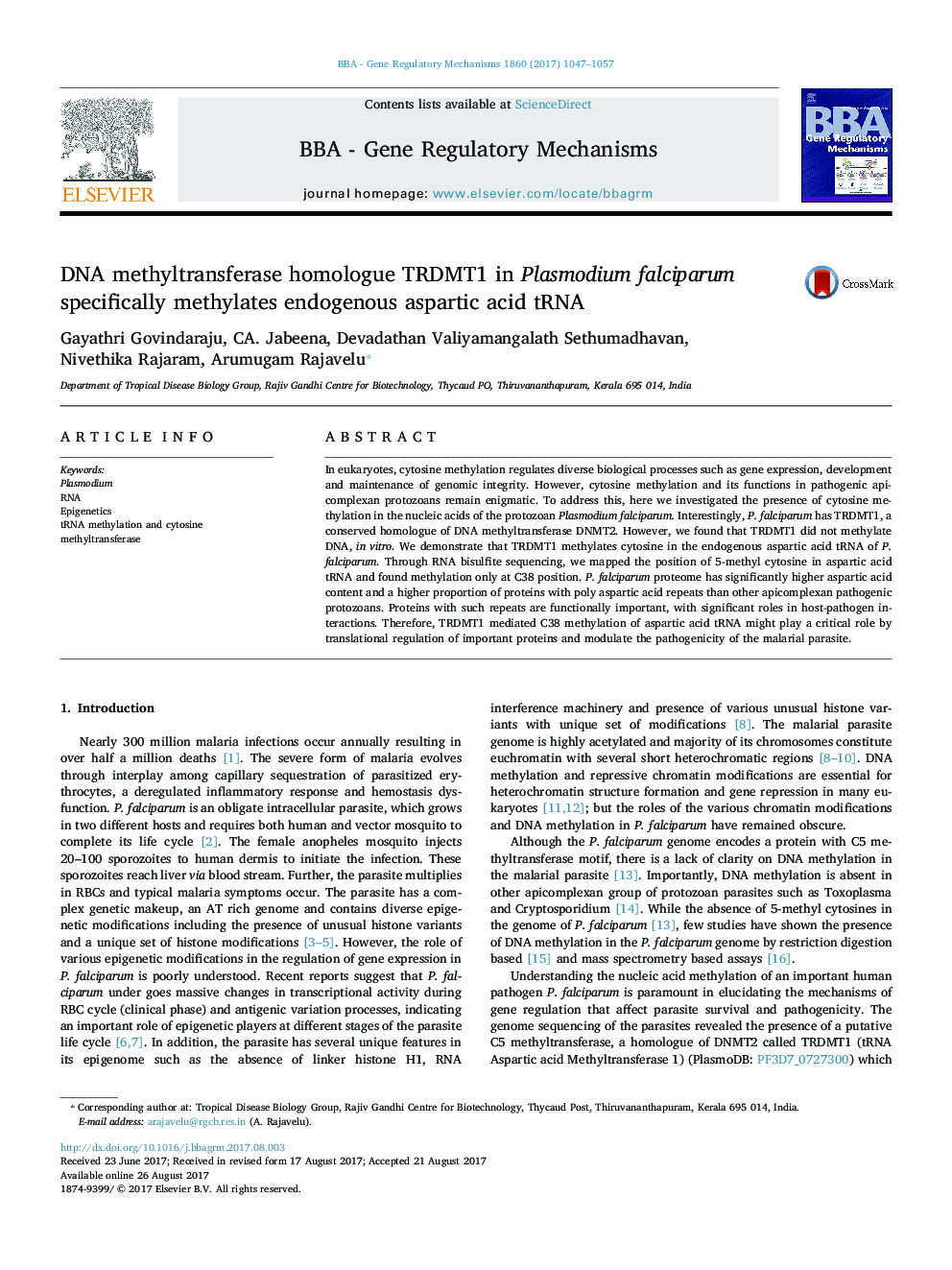| Article ID | Journal | Published Year | Pages | File Type |
|---|---|---|---|---|
| 5507687 | Biochimica et Biophysica Acta (BBA) - Gene Regulatory Mechanisms | 2017 | 11 Pages |
Abstract
In eukaryotes, cytosine methylation regulates diverse biological processes such as gene expression, development and maintenance of genomic integrity. However, cytosine methylation and its functions in pathogenic apicomplexan protozoans remain enigmatic. To address this, here we investigated the presence of cytosine methylation in the nucleic acids of the protozoan Plasmodium falciparum. Interestingly, P. falciparum has TRDMT1, a conserved homologue of DNA methyltransferase DNMT2. However, we found that TRDMT1 did not methylate DNA, in vitro. We demonstrate that TRDMT1 methylates cytosine in the endogenous aspartic acid tRNA of P. falciparum. Through RNA bisulfite sequencing, we mapped the position of 5-methyl cytosine in aspartic acid tRNA and found methylation only at C38 position. P. falciparum proteome has significantly higher aspartic acid content and a higher proportion of proteins with poly aspartic acid repeats than other apicomplexan pathogenic protozoans. Proteins with such repeats are functionally important, with significant roles in host-pathogen interactions. Therefore, TRDMT1 mediated C38 methylation of aspartic acid tRNA might play a critical role by translational regulation of important proteins and modulate the pathogenicity of the malarial parasite.
Keywords
Related Topics
Life Sciences
Biochemistry, Genetics and Molecular Biology
Biochemistry
Authors
Gayathri Govindaraju, CA. Jabeena, Devadathan Valiyamangalath Sethumadhavan, Nivethika Rajaram, Arumugam Rajavelu,
